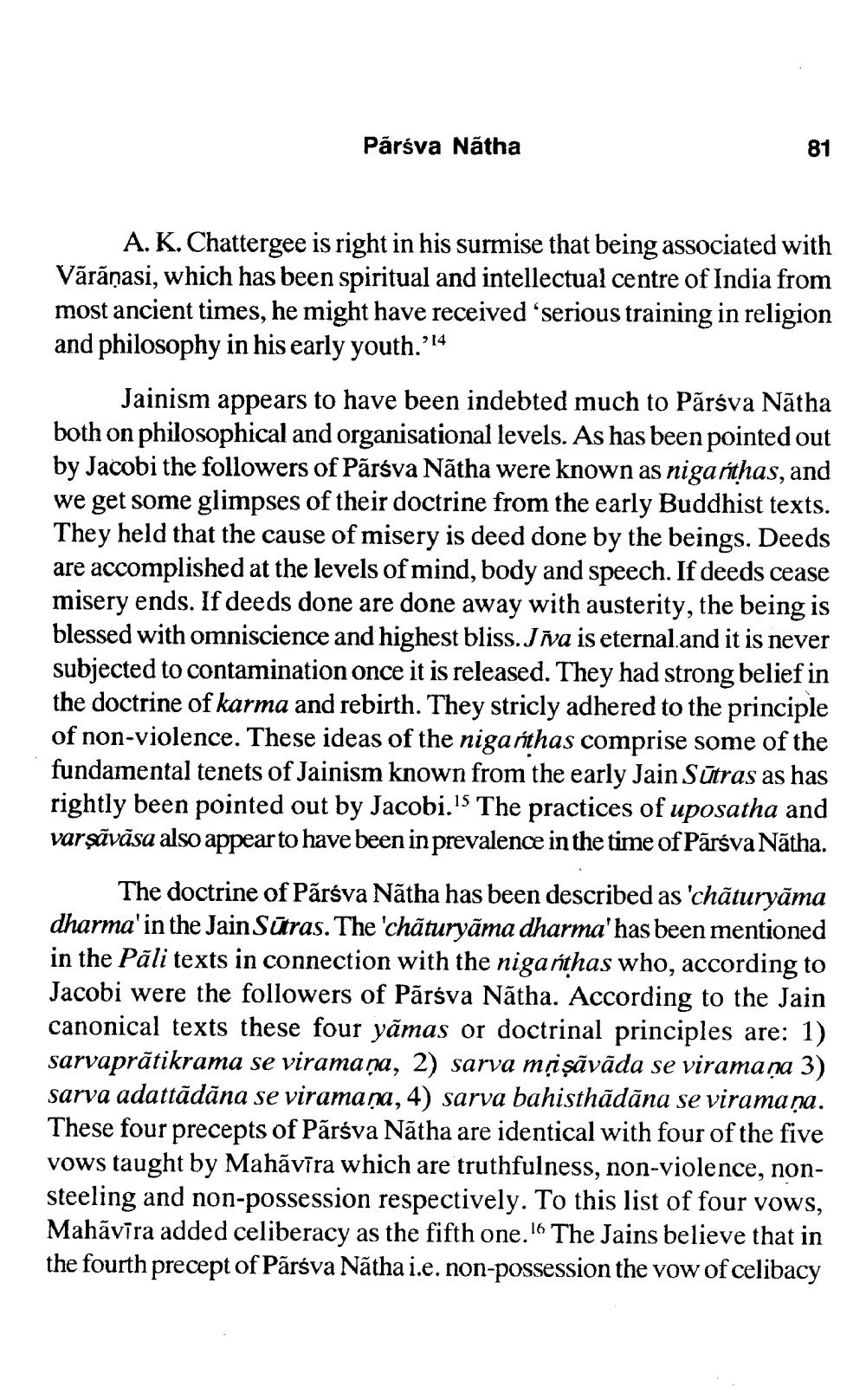________________
Parsva Nätha
81
A. K. Chattergee is right in his surmise that being associated with Vārāṇasi, which has been spiritual and intellectual centre of India from most ancient times, he might have received 'serious training in religion and philosophy in his early youth.'
14
Jainism appears to have been indebted much to Parsva Natha both on philosophical and organisational levels. As has been pointed out by Jacobi the followers of Parsva Nãtha were known as nigarthas, and we get some glimpses of their doctrine from the early Buddhist texts. They held that the cause of misery is deed done by the beings. Deeds are accomplished at the levels of mind, body and speech. If deeds cease misery ends. If deeds done are done away with austerity, the being is blessed with omniscience and highest bliss. Jiva is eternal and it is never subjected to contamination once it is released. They had strong belief in the doctrine of karma and rebirth. They stricly adhered to the principle of non-violence. These ideas of the nigarthas comprise some of the fundamental tenets of Jainism known from the early Jain Sutras as has rightly been pointed out by Jacobi.15 The practices of uposatha and var şăvăsa also appear to have been in prevalence in the time of Parsva Natha.
The doctrine of Parsva Nãtha has been described as 'chaturyāma dharma' in the Jain Sutras. The 'chaturyama dharma' has been mentioned in the Pāli texts in connection with the niganthas who, according to Jacobi were the followers of Parsva Nãtha. According to the Jain canonical texts these four yamas or doctrinal principles are: 1) sarvaprātikrama se viramaņa, 2) sarva mṛṣāvāda se viramaņa 3) sarva adattādāna se viramaṇa, 4) sarva bahisthādāna se viramaņa. These four precepts of Parsva Natha are identical with four of the five vows taught by Mahāvīra which are truthfulness, non-violence, nonsteeling and non-possession respectively. To this list of four vows, Mahāvīra added celiberacy as the fifth one. 16 The Jains believe that in the fourth precept of Parsva Natha i.e. non-possession the vow of celibacy




